In this article, I’m going to discuss the connection between hypoglycemia and alcohol. In particular, I’ll show you how to avoid the unpleasant symptoms that are often confused with psychiatric disorders or, in many recovery circles, spiritual failure.
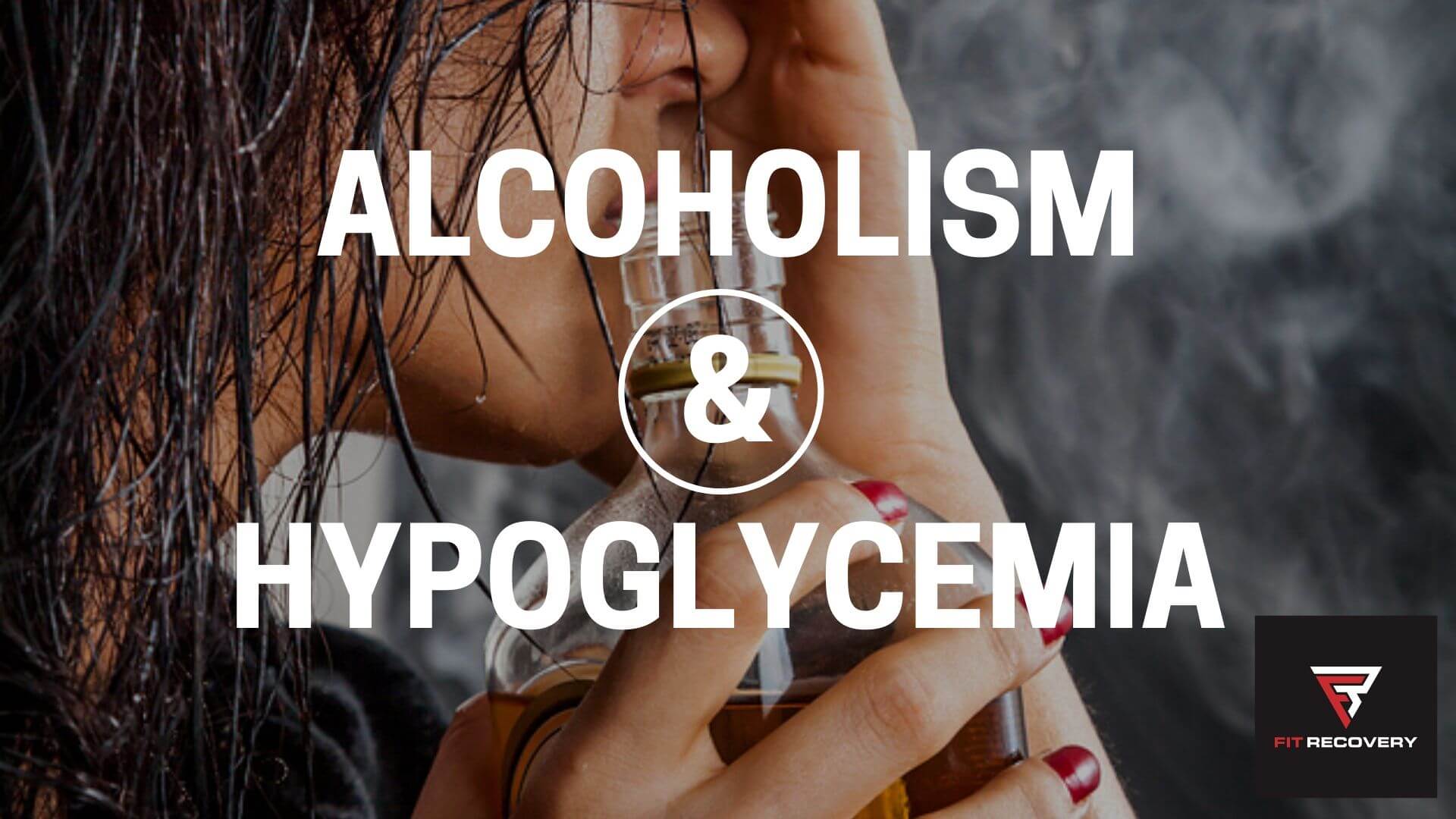
As it turns out, quitting drinking is not quite enough to recover fully from addiction. But don’t worry – it’s fully within your power to feel incredible once you make a few changes to your diet and lifestyle. This article can be a real lifesaver for people who have not yet read about the significant overlap between hypoglycemia and alcohol.
You may have heard about people who gave up, only to mysteriously become dry drunks. They are irritable and generally not fun to be around. While this condition is often characterized as a spiritual defect, there is evidence that this “syndrome” is essentially undiagnosed (and uncorrected) hypoglycemia.
Symptoms include:
- Anxiousness or restlessness
- Irritability
- Sugar cravings
- Alcohol cravings
- Insomnia
- General sense of unease
- Confusion
- Rapid heartbeat
- Tremors
- Body tingling
- Sweating
- Impaired vision
- Nervous exhaustion
Perhaps you can relate to the little hypoglycemic blue guy below:
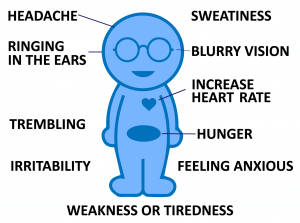
We will now proceed to explore the relationship between alcohol and hypoglycemia.
How Does Alcoholism Cause Hypoglycemia?
Alcoholism is a biochemical disorder that can be caused by a variety of factors, including genetic liver enzyme anomalies, neurotransmitter deficiencies, prenatal alcohol exposure, and traumatic stress that permanently alters neural pathways.
Hypoglycemia is a very common result of chronic heavy drinking because the substance is a highly refined sugar that is rapidly absorbed through the stomach lining. The addicted brain prefers alcohol to sugar because it provides a quicker hit. A high-sugar diet can certainly cause this deficiency for a nondrinker, but they often go hand in hand.
In fact, alcoholism and hypoglycemia that results in excessive sugar consumption often lead to many of the same health risks:
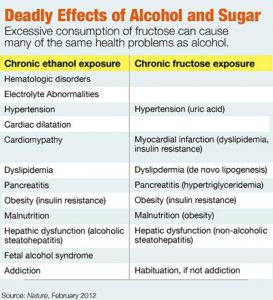
Because alcohol is a sugar, drinking causes the pancreas to produce insulin, which takes sugar out of the bloodstream. When this happens, blood sugar levels fall well below normal, creating a sense of malaise.
In response to low blood sugar, the adrenals release adrenaline that causes the liver to release glycogen (stored glucose) and restore your blood sugar levels temporarily. Excess adrenaline causes discomfort and irritability. This cycle continues until nervous exhaustion becomes the norm.
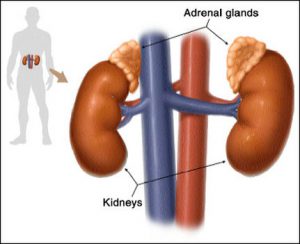
Hypoglycemia is a metabolic rollercoaster: Alcohol and/or sugar intake, followed by a pleasant high, followed by insulin release, followed by low blood sugar and misery, followed by adrenaline release, followed by anxiety and cravings, followed by more drinking or sugar, and so on…
Eventually, the adrenals become fatigued, leading to depression and further emotional instability.
Over time, the adrenals become less able to produce adrenaline and the body becomes more resistant to insulin. Blood pressure fluctuates abnormally, metabolism slows, and cravings for booze and/or sugar become endless.
An alcoholic who is hypoglycemic relies on drinking not just to normalize brain chemistry, but to temporarily increase blood sugar and feel okay. A drink grants relief until blood sugar levels inevitably fall, at which point the alcoholic experiences a screaming full-body urge for more liquor.
I experienced this cycle myself when I drank, and it was pure hell. I had no idea that my cravings had anything to do with my body’s inability to regulate my blood sugar. Nor did I have any clue that drinking had caused this problem in the first place.
Research Studies

Over the past few decades, science has begun to shed light on why these co-occur:
- Chronic drinking inhibits liver enzymes required to maintain stable blood sugar levels, exacerbating hypoglycemia (source)
- Drinking significantly redistributes blood flow to the insulin-producing portion of the pancreas (source)
- At Health Recovery Center in Minneapolis, 88% of alcoholic patients were found to be hypoglycemic (source)
- The Hypoglycemia Support Foundation acknowledges the significant symptom overlap between alcoholism and hypoglycemia (source)
Joan Mathews Larson, a pioneer of orthomolecular addiction treatment and founder of Health Recovery Center, cites some interesting studies on alcoholism and hypoglycemia in her groundbreaking book, 7 Weeks to Sobriety:
- When one hundred non-alcoholics were compared with one hundred alcoholics, 14% of the non-alcoholics were found to be hypoglycemic, compared to 96% of the alcoholics (J. Poulos, D. Stafford, and K. Carron)
- In a three year study of alcoholics, 95% were shown to be hypoglycemic (Robert Meiers, M.D.)
- Six-hour glucose tolerance tests given to alcoholics revealed that up to 90% of them were hypoglycemic (Emanuel Cheraskin, M.D.)
According to endocrinologist John Tintera, M.D., “by far the most important part of the physiological treatment of alcoholics is the complete restriction of easily absorbed carbohydrates.”
Tintera points out that hypoglycemic blood sugar swings in recovering alcoholics create symptoms that are very similar to “deep-rooted emotional or psychiatric disorders.”
Beating Post-Acute Withdrawal Syndrome (PAWS)
I’ve written on this blog about the alcohol withdrawal timeline, which ends for many people with post-acute withdrawal syndrome (PAWS). This slippery state of existence lasted months for me, because it took a long time to discover the diet changes, supplements, and lifestyle strategies that finally helped me transform my life.
But if you want to avoid being a dry drunk in a hypoglycemic malaise, there’s one simple change you can make now…
AVOID EXCESS SUGAR
Experts like Joan Mathews Larson will advise that you swear off sweets for the rest of your life. They will also tell you to quit drinking anything containing caffeine, which releases adrenaline. Perhaps I’m endowed with resilient physiology, but I’ve had a lot of success with a less drastic approach:
- I cut out soda, condiments containing sugar, candy, and junk from my daily diet
- I eat dark chocolate sweetened with stevia powder
- I have 1-2 servings of whole fruit per day and avoid fruit juice
- I eat mostly food that comes out of the ground or fresh meats/eggs/fish
- I never sweeten my coffee or tea, except with stevia powder
- I use unsweetened almond milk in my coffee instead of regular milk (lactose is sugar)
- I’ve cut down on coffee by switching to Yerba Mate after 2 cups
- I’ve replaced quick-digesting bread with Ezekiel bread (sprouted whole grain bread)
- Every Sunday, I have a cheat meal in which I eat whatever the hell I want
Sometimes I’ve felt a little foggy on Monday mornings, especially if I’ve consumed cheesecake and dark chocolate ganache the night before. But I’ve cut my sugar to such low levels that I don’t even want sweet things that much anymore. Whereas my sweet tooth was insatiable when I quit drinking, these days a small bite of the chocolate cake is all I want.
It’s hard to crave sweets when you’ve just eaten a grass-fed steak. Unlike Twizzlers, fresh meats, eggs, and cheeses contain good saturated fats that will help you restore feel-good chemicals in your brain.
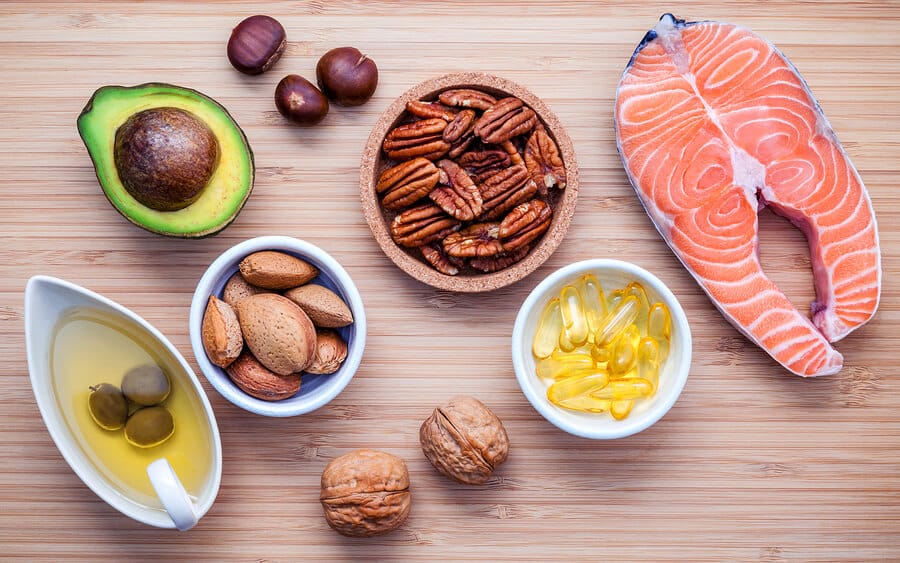
After cutting excess sugar from your diet, you’ll almost certainly feel a major difference in your emotional stability within a few weeks.
Further Suggestions
Here are three more tips to help:
- Exercising daily improves insulin sensitivity (source)
- Getting 8 hours of sleep every night reduces the risk of blood sugar problems (source)
- Supplementing with Rhodiola Rosea can help combat fatigue by repairing your adrenals (source)
- Supplementing with L-Glutamine can kill sugar (and alcohol) cravings instantly
Rhodiola rosea is an herb proven to be effective at restoring adrenal health. I still take this supplement on days that I have to train 6 or more people. I don’t feel anything when I take it, but I notice that I’m able to come home and write a lot without feeling fatigued. I’ve had good results with rhodiola rosea from NOW Rhodiola.
To be clear, I’m not arguing that psychological considerations are unimportant in recovery. I’m a huge fan of meditation and deep breathing techniques. Reading books by Anthony Robbins and learning neuro-linguistic programming (NLP) helped me enormously after I’d begun to repair my system from years of damage.
But it’s not all mind over matter. Your mind cannot thrive without a healthy brain, which is made out of matter. Your physical health, beginning with nutrition, is the groundwork for your mental improvement.
If your blood sugar is out of whack and your stress hormones are elevated all day long, your efforts at mental reconditioning and spiritual transformation will be difficult uphill battles, if not outright impossible.
A Personal Anecdote
I briefly knew an addiction counselor whose defining trait seemed to be irritability disguised as grittiness. She spent most of her days in an office lined with trinkets that all turned out to be filled with various brands of candy. She was extremely overweight, had joint pain, and rarely smiled. I once heard her tell an alcoholic patient: “You’re successful in sobriety when you can sit in a chair and not be suicidal.”
Really? Is sitting in a chair the most that any so-called recovering addict can hope for in this life? What’s the point of even trying? Fortunately, I know now that the bland, bitter, depressing sense of life so common in “sobriety” is caused by a refusal to address one’s own lifestyle and nutrition. This woman meant well, but it was clear that her sugar problem kept her from being healthy, feeling good, and perceiving the blatant connection between alcoholism and hypoglycemia.
It’s unfortunate to be an addiction counselor who still meets the criteria of a dry drunk.
Cutting out excess sugar, and only enjoying sweets on special occasions (once per week or less) was one of the best things I ever did to feel better after beating alcoholism. My blood sugar rollercoaster totally disappeared within about a month of quitting drinking. As soon as I quit drinking diet soda, I began to feel stable all the time.
I have a cheat meal once per week, and these days I prefer fried chicken to ice cream. My sweet tooth died when I stopped eating sugar regularly. I love that I’m able to take or leave sugar. I limit my sugar intake to about one or two servings of fruit each day.
Because we’re all biochemically different, it’s definitely possible that some people will have a harder time cutting sugar than I did.
Conclusion
This deficiency is perhaps the most ignored centerpiece of recovery. But if you’re new to this site, you should also know that nutrient deficiencies caused by alcoholism can persist indefinitely.
These deficiencies will cause anxiety, depression, insomnia, and other nasty symptoms until they are fixed.
If you have any questions, please leave them in the comment box below.

FAQ:
How is alcohol-induced hypoglycemia treated?
Quitting or reducing consumption, along with avoiding sugar, is the best way to eliminate alcohol-induced hypoglycemia. Without this substance or sugar, insulin spikes no longer occur and blood sugar levels will normalize. For many people, this results in a much better sense of well-being and reduction of anxiety levels.
Why do alcoholics get hypoglycemia?
Drinking spikes insulin levels, which can lead to episodes of low blood sugar. This problem can become chronic for addicts, who are also deficient in nutrients like chromium that regulate blood sugar levels.
Can alcoholism cause hypoglycemia?
Alcoholism can lead to hypoglycemia. The problem can be resolved by avoiding drinking, sugar, and processed foods that are high in carbohydrates. L-glutamine is also a great supplement for hypoglycemia.
Does quitting alcohol lower blood sugar?
Alcoholics who quit drinking often suffer from low blood sugar, but this problem is not caused by quitting. It is a residual effect of chronic heavy drinking, which spikes insulin levels and leads to episodes of low blood sugar.
Authors
-
A decade+ addiction-free, Chris Scott, the visionary founder of Fit Recovery, passionately guides Fit Recovery 2.0 Members toward a vibrant, healthier lifestyle. Through the integration of groundbreaking nutritional strategies, transformative reframing techniques, neurolinguistic programming, and dynamic pro-recovery habit systems, he inspires individuals to boldly take charge of their lives and break free from alcohol. Chris is celebrated as a Professional Member of the Alliance For Addiction Solutions. Moreover, he is the proud author of the bestselling book "Drinking Sucks!" which stands as a vital beacon of hope for those yearning to quit drinking. Additionally, he created the celebrated online program Fit Recovery 2.0, designed to provide unwavering support for individuals embarking on their recovery journey.
View all posts Fit Recovery Founder & Director -
Dr. Rebeca Eriksen is the Nutritional Consultant for Fit Recovery. She has a PhD in Nutritional Genetics from Imperial College London, and over ten years of clinical experience designing custom nutritional repair regimens for patients recovering from alcohol addiction. In addition to her work at the exclusive Executive Health clinic in Marbella, Spain, she helps to keep Fit Recovery up to date with emerging research.
View all posts


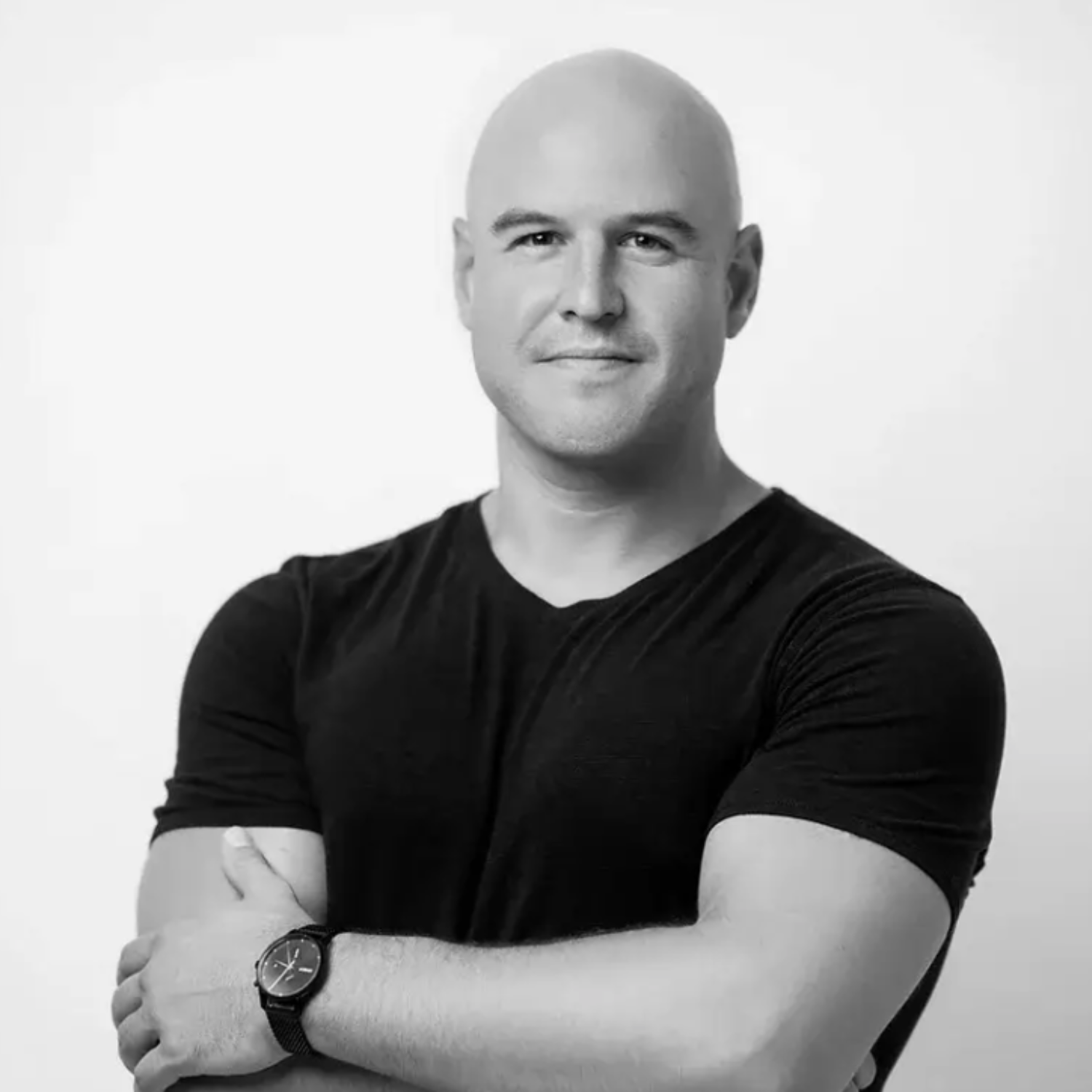



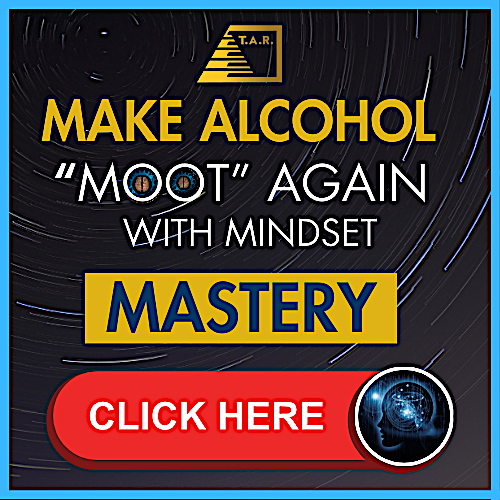
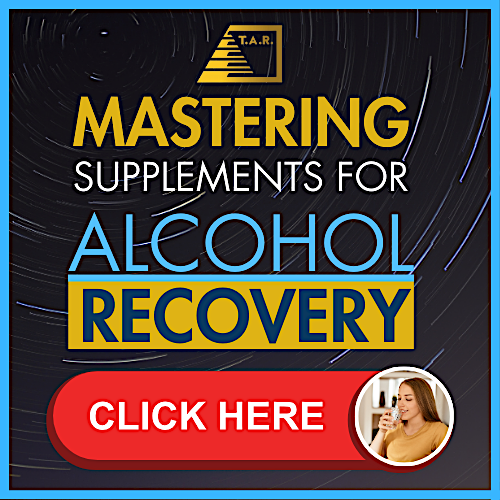
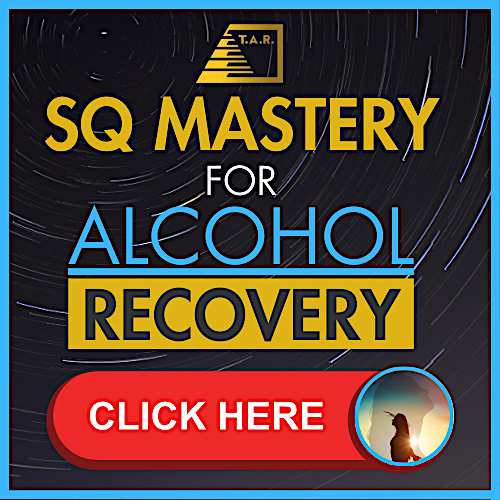


Wow I’m so happy I found this. I was always hypoglycemic too. I just recently quit drinking after binge drinking years and wondering what went wrong I hadn’t experienced low blood sugar in so long. My dads been trying to get me in the carnivore diet and I haven’t because I remember I was told by my doctor when I was young I needed to eat slow acting carbo hydrates. I learned a few years ago that carbs are just really bad for you in general so I have switched to low GI foods. I realize I hardly ate while… Read more »
Hello I am experiencing low blood sugar issues after not drinking for 4 months besides the occasional once a week or in social settings. Is this something I will always struggle with or can my body eventually get use to me not drinking.
Hi Ashley, what have you done to help better control blood glucose? Eating a diet full of healthy protein and incorporating healthy fats, high-fiber and healthy carbs is needed. For a while you will need to eat a meal or a snack about every 2-4 hours, and eliminate alcohol, sugar, and refined carbs. Exercise is important as well. If you feel you need more information, I will be happy to help. You can email me at tana@fitrecovery.com
Always be sure to monitor your symptoms and visit a doctor or emergency room if you notice your symptoms are severe.
This very true! 99% of people coming into recovery must have proper nutrients plan and followup regarding the sugar connection because the doctors usually like to prescribe pharmaceuticals and not treatment for hypoglycemia. I usually tell newcomers to get a complete medical and one of the things they must find out is are you hypoglycemic or diabetic because most alcoholics do not have Normal blood sugars plus have no need for food because of the alcohol and cigarettes which also raise blood sugar plus now introduced to caffeine, switching one drug for another and setup for relapse and continuous shakes… Read more »
Has anyone ever done a study on hypoglycemia being a precursor to alcoholism? I was hypoglycemic all the time as a child. I didn’t know what was wrong with me and my parents never took me to a doctor. Looking back, not only did alcohol help me escape, it probably gave me the sugar I needed physically to function until my sugar dropped and I drank more. I’m not saying hypoglycemia caused the drinking, but has anyone checked to see if it is an increased risk factor? Perhaps 88% of alcoholics had hypoglycemia BEFORE drinking?
Totally plausible Sarah – I was taken to the doctor as a child for symptoms of hypoglycemia! If the study hasn’t been done, then it should be.
I did a self study. Read book on sugar blues. The corporations have been adding sugar to everything for years!! The children are addicted, if you read all of the ingrients and monitor what they are eating and drinking. This is a perfect set up for the new drugs for HDHD label and the synthetic meth see pharma names, given to children to help them focus etc. It’s s crime what is happening. The irritability the poor development of their mind body now includes addiction to sugar and dopamine.
I was thinking the same thing. I was diagnosed as hypoglycemic as a child as well.
I watched a YouTube video made by a Dr. Andrew Huberman where he discusses the link between hypoglycemia and alcohol. If memory serves he points out that alcohols effect on a hypoglycemic’s body is one of euphoria; linking the quick rise of blood glucose as a co-factor in the desire to drink more to essentially bring relief, thus giving the person an additional incentive to consume more alcohol more often. Whereas a person with normal blood glucose experiences the effect as more sedative, and typically grows tired of the felling that they experience. As a person who identifies as the… Read more »
Hello my husband quit drinking after 30 years. His daily diet consisted of several diet Coke’s while he worked maybe a fast food meal at lunch maybe no meal and coming home to drink approx 10-15 beers a night along with a dinner . Since he stopped drinking and cut Diet Coke he eats more regularly but has noticed some hyperglycemic issues in the morning. He does have a glass of OJ every morning which has made the symptoms almost disappear
How long will this continue or should he see a Dr?